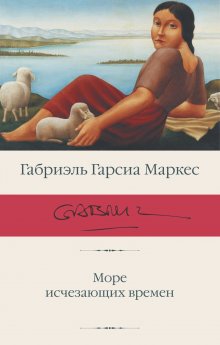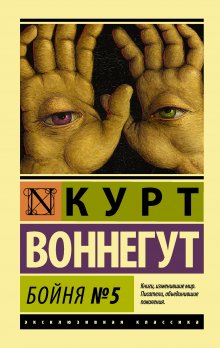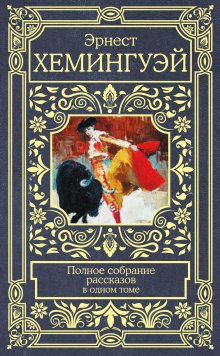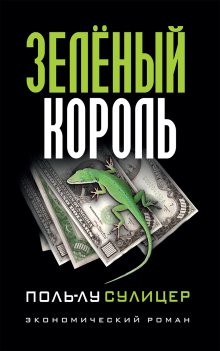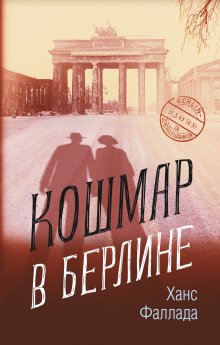Гилберт Кит Честертон - Сельский вампир и другие истории Отца Брауна / Vampire of the Village and other Father Brown Stories. Уровень 3
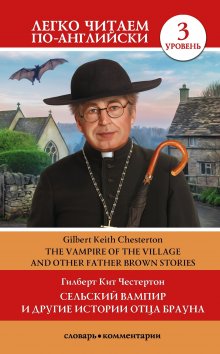
Все авторские права соблюдены. Напишите нам, если Вы не согласны.
Описание книги "Сельский вампир и другие истории Отца Брауна / Vampire of the Village and other Father Brown Stories. Уровень 3"
Описание и краткое содержание "Сельский вампир и другие истории Отца Брауна / Vampire of the Village and other Father Brown Stories. Уровень 3" читать бесплатно онлайн.
The priest continued to think about that conversation with the poet. An inner feeling told himthat the strong young man was eaten from within by some grief[39]greater even than the ordinary story of ordinary parents being a difficultyto the course of true love. It was all the more so, because there were not any other reasons. The boy already had literary and dramatic success; his books might be said to be very popular. Nor did he drink or spend away his well-earned money[40]. At his well-knownvisits at the Blue Lion he drank only one glass of light ale; and he seemed to be rather careful with his money. Father Brown thought of another possible difficulty in connection with Hurrel’s large earnings and small expenses; and his brow darkened[41].
The conversation of Miss Carstairs-Carew, on whom he called next[42], was made to paint the priest’s son in the darkest colours[43]. But because it was about him having all the vices which Father Brown was quite sure the young man did not have[44], he put it down to a usualmix of Puritanism and gossip. The lady, though big, was quite elegant, however, and offered the visitor a small glass of port-wine and a piece of seed-cake, in the manner of everybody’s oldest great-aunts, before he managed to avoid a speech about the general fall of morals and manners[45].
His next place of visit was very much of a contrast[46]; because he went down a dark and dirty street, where Miss Carstairs-Carew would have refused to follow him; and then into a small house made noisier by a high voice on a top floor… From this he left, with a rather confused expression along with a very excited man who had a blue chin and a black with a trace of bottle-green jacket, shouting loudly:‘He did not disappear! Maltravers never disappeared! He appeared:he appeared dead and I’ve appeared alive. But where’s all the rest of the company? Where’s that man, that monster, who on purposestole my lines, spoiled my best scenes and ruined my career? I was the best Tubal that ever walked the stage. He played Shylock – he didn’t need to act much for that! And so with the greatest opportunity of my whole career[47]. I could show you cuttings from newspapers[48] on my acting of Fortinbras – ’
‘I’m quite sure they were great and very well-deserved,’ said the little priest. ‘I understood the company had left the village before Maltravers died. But it’s all right. It’s quite all right.’ And he began to walk down the street with speed again.
‘He was to act Polonius[49],’ continued the unstoppable speakerbehind him. Father Brown suddenly stopped dead[50].
‘Oh,’ he said very slowly, ‘he was to act Polonius.’
‘That villain Hankin!’ screamed the actor. ‘Follow him. Follow him to the ends of the earth[51]! Of course he’d left the village; trust him for that[52]. Follow him – find him; and may the curses – ’But the priest was again running away down the street.
Two much simpler and perhaps more practical conversations were after this emotional scene. First the priest went into the bank, where he spent ten minutes with the manager; and then made a very polite call to the old and nice clergyman. Here again all seemed very much as described, without changeand that cannot be changedas one might think; a touch or two of faith from more harsh traditions, in the small crucifix on the wall, the big Bible on the bookshelf and the old gentleman starting with regret that people don’t respect Sunday enough; but all with a flavour of politeness, a little delicacy and style.
The clergyman also gave his guest a glass of port-wine; but with it he gave an old British biscuit instead of seed-cake. The priest had again the weird feeling that everything was almost too perfect, and that he was living a century before his time. Only on one point the nice old clergyman refused to be nicer than that; he kindly but firmly said that he would not meet a stage player. However, Father Brown put down his glass of port-wine with thanks; and went off to meet his friend the doctor at the corner of the street; from wherethey were to go together to the offices of Mr Carver, the lawyer.
‘I suppose your trip was not interesting,’ began the doctor, ‘and you've found it a very boring village.’
Father Brown’s reply was quick and almost shrill. ‘Don’t call your village boring. I am sure it’s a very unusual village indeed[53].’
‘I’ve been working with the only unusual thing that ever happened here, I should think,’ noticed Dr Mulborough. ‘And even that happened to somebody from outside. I may tell you they managed the exhumation quietly last night; and I did the autopsy this morning. In plain words we’ve been digging up a body that’s simply full of poison.’
‘A body full of poison,’ repeated Father Brown. ‘Believe me, your village has something much more unusual than that.’
There was sudden silence, and then also a sudden sound of the old bell on the doorstep of the lawyer’s house; and that legal gentleman invited them in, and he presented them to a white-haired, yellow-faced gentleman with a scar, who was the Admiral.
By this time the atmosphere of the village stuck hard in the mindof the little priest; but he knew that the lawyer was indeed the sort of lawyer who gives advice to people like Miss Carstairs-Carew. But though he was an old bird, he looked like something more than that. Perhaps it was becauseof the uniformity of background; but the priest had again the strange feeling that he himself was put back into the early nineteenth century, rather than that the lawyer had survived into the early twentieth[54]. His collar and tie looked almost like a pillar as he put his long chin into them; but they were clean and neat; and there was even something about him of anold dandy. In short, he was what is called well-preserved, even if partly by being like a stone.
The lawyer and the Admiral, and even the doctor, showed some surprise on finding that Father Brown was rather ready to defend the priest’s son[55]against the local complaints on the side of the priest.
‘I found our young friend rather attractive, myself,’ he said. ‘He’s a good talker and a good poet; and Mrs Maltravers, who is serious about that at least, says he’s quite a good actor.’
‘Indeed,’ said the lawyer. ‘Potter’s Pond, outside Mrs Maltravers, is rather more interested if he is a good son.’
‘He is a good son,’ said Father Brown. ‘That’s the strange thing.’
‘Damn it all,’ said the Admiral. ‘Do you mean he really loves his father?’
The priest was uncertain. Then he said, ‘I’m not quite so sure about that. That’s the other strange thing.’
‘What the devil do you mean?’ asked the sailor with a curse.
‘I mean,’ said Father Brown, ‘that the son still speaks of his father in a hard unkind way; but he seems after all to have done more than his duty by him[56]. I had a talk with the bank manager, and as we were looking privately into a serious crime, under authority from the police, he told me the facts. The old clergyman has left thechurch work; indeed, this was never actually his church. The people who go to church at all, go to Dutton-Abbot, not far away from here. The old man has no money of his own, but his son is making good money; and the old man is well looked after. He gave me some port-wineof absolutely first-class quality; I saw manyold bottles of it; and I left him sitting down to a little fine lunch in an old-fashioned style. It must be done on the young man’s money.’
‘Quite a model son,’ said Carver with a sarcasm.
Father Brown agreed, frowning, as if thinking ofa riddle of his own; and then said:‘A model son. But rather an unnatural model.’
At this moment a postman brought in an unstamped letter for the lawyer; a letter which the lawyer opened impatiently after a quick look. As it fell apart, the priest saw a spidery, crazy handwriting and the autograph of ‘Phoenix Fitzgerald’; and made a conclusion which the other supported.
‘It’s that highly emotional actor that’s always annoying us,’ he said. ‘He’s got some conflict with his dead and gone fellow actor, which can’t have anything to do with the case[57]. We all refuse to see him, except the doctor, who did see him; and the doctor says he’s mad.’
‘Yes,’ said Father Brown, pressing his lips. ‘I should say he’s mad. But of course there can’t be any doubt that he’s right.’
‘Right?’ shouted Carver. ‘Right about what?’
‘About this being connected with the old theatrical company,’ said Father Brown. ‘Do you know the first thing that surprised me about this story? It was that idea that Maltravers was killed by villagers because he said something bad about their village. It’s strange what court investigators can get jurymen to believe[58]; and journalists, of course, trust them too. They can’t know much about English villagers. I’m an English villager myself; at least I was grown, with other turnips, in Essex[59]. Can you imagine an English peasant thinking abouthis village as an ideal place, like the citizen of an old Greek city-state; taking the sword to protect it, like a man in the small medieval republic of an Italian town? Can you hear a merry old villager saying, “Blood alone can wipe out one spot on the emblem of Potter’s Pond”? By St George and the Dragon[60], I only wish they would! But, in fact, I have a more practical argument for the other idea.’
He paused for a moment, as if collecting his thoughts[61], and then went on:‘They didn’t understandthe meaning of those few last words poor Maltravers was heard to say[62]. He wasn’t telling the villagers that the village was only a hamlet. He was talking to an actor; they were going to put on a performance in which Fitzgerald was to be Fortinbras, the unknown Hankin to be Polonius, and Maltravers, no doubt, the Prince of Denmark. Perhaps somebody else wanted the part or had views on the part[63]; and Maltravers said angrily, “You’d be an ugly little Hamlet”; that’s all.’
Dr Mulborough was struck; he seemed to be thinking aboutthat idea slowly but without difficulty. At last he said, before the others could speak:‘And what do you suggest that we should do now?’
Father Brown stood up quickly; but he spoke calmly enough. ‘If these gentlemen will excuse us for a moment, I propose that you and I, doctor, should go round at once to the Horners. I know the priest and his son will both be there just now. And what I want to do, doctor, is this. Nobody in the village knows yet, I think, about your autopsy and its result. I want you to simply tell both the clergyman and his son, while they are there together, the exact fact of the case; that Maltravers died by poison and not by a hit on the head.’
Dr Mulborough had to rethink his disbelief when told that it was an unusual village[64]. The scene which followed, when he actually did what the priest asked him, was certainly of the sort in which a man, as the saying is, can hardly believe his eyes.
The Rev. Samuel Horner was standing in his black dress, which made the silver of his head more noticeable; his hand rested at the moment on the table at which he often sit to study the Bible, now possibly by accident only; but it gave him a greater look of authority. And opposite to him his rebel son was sitting relaxed in a chair, smoking a cheap cigarette with a grin on his face; a lively picture of youthful disrespect.
The old man offered Father Brown a seat, which he took and sat there silent, looking at the ceiling. But something made Mulborough feel that he could tell his important news more impressively standing up.
‘I feel,’ he said, ‘that you should know, as in some sense the spiritual father of this village[65], that one terrible tragedy has taken on a new significance; possibly even more terrible. You must remember the sad case of the death of Maltravers, who was supposed to have been killed with the hit of a club, probably by some enemy among the villagers.’
The clergyman moved hishand. ‘God forbid,’ he said, ‘that I should say anything good about that case. But when an actor brings his evil into this quiet village, he goes against the judgement of God.’
‘Perhaps,’ said the doctor seriously. ‘But anyhow it was not so that the judgement fell. I have just been asked to make an autopsy on the body; and I can tell you, first, that the hit on the head could not have caused the death; and, second, that the body was full of poison, which caused death without any doubt.’
Young Hurrel Horner threw his cigarette away and was on his feet as quick as a cat. He jumped towards the reading-desk.
‘Are you certain of this?’ he exclaimed. ‘Are you absolutely certain that that hit could not cause death?’
‘Absolutely certain,’ said the doctor.
‘Well,’ said Hurrel, ‘I almost wish this one could.’
In a moment, before anyone could move a finger, he had hit the priest on the mouth, throwinghim backwards like a black doll against the door.
‘What are you doing?’ shouted Mulborough, shaken from head to foot with the shock and mere sound of the hit. ‘Father Brown, what is this madman doing?’
Конец ознакомительного фрагмента.
Текст предоставлен ООО «ЛитРес».
Прочитайте эту книгу целиком, купив полную легальную версию на ЛитРес.
Безопасно оплатить книгу можно банковской картой Visa, MasterCard, Maestro, со счета мобильного телефона, с платежного терминала, в салоне МТС или Связной, через PayPal, WebMoney, Яндекс.Деньги, QIWI Кошелек, бонусными картами или другим удобным Вам способом.
Примечания
1
was but one of the many riddles – загадка… была лишь одной из многих загадок
2
were eventually solved in solving the mystery – которые были разгаданы, когда тайна открылась
3
he had been overheard apparently arguing – слышали, как он якобы ругался
4
though probably only made with some sort of club – хотя и был нанесен всего лишь какой-то дубинкой
5
there was something rich and fruity about his body shape and rather red face – было что-то насыщенное и сочное в его телосложении и довольно красном лице
6
In spite of the somewhat heavy appearance of the doctor – Несмотря на несколько тяжеловесный внешний вид доктора
Подписывайтесь на наши страницы в социальных сетях.
Будьте в курсе последних книжных новинок, комментируйте, обсуждайте. Мы ждём Вас!
Похожие книги на "Сельский вампир и другие истории Отца Брауна / Vampire of the Village and other Father Brown Stories. Уровень 3"
Книги похожие на "Сельский вампир и другие истории Отца Брауна / Vampire of the Village and other Father Brown Stories. Уровень 3" читать онлайн или скачать бесплатно полные версии.
Мы рекомендуем Вам зарегистрироваться либо войти на сайт под своим именем.
Отзывы о "Гилберт Кит Честертон - Сельский вампир и другие истории Отца Брауна / Vampire of the Village and other Father Brown Stories. Уровень 3"
Отзывы читателей о книге "Сельский вампир и другие истории Отца Брауна / Vampire of the Village and other Father Brown Stories. Уровень 3", комментарии и мнения людей о произведении.







